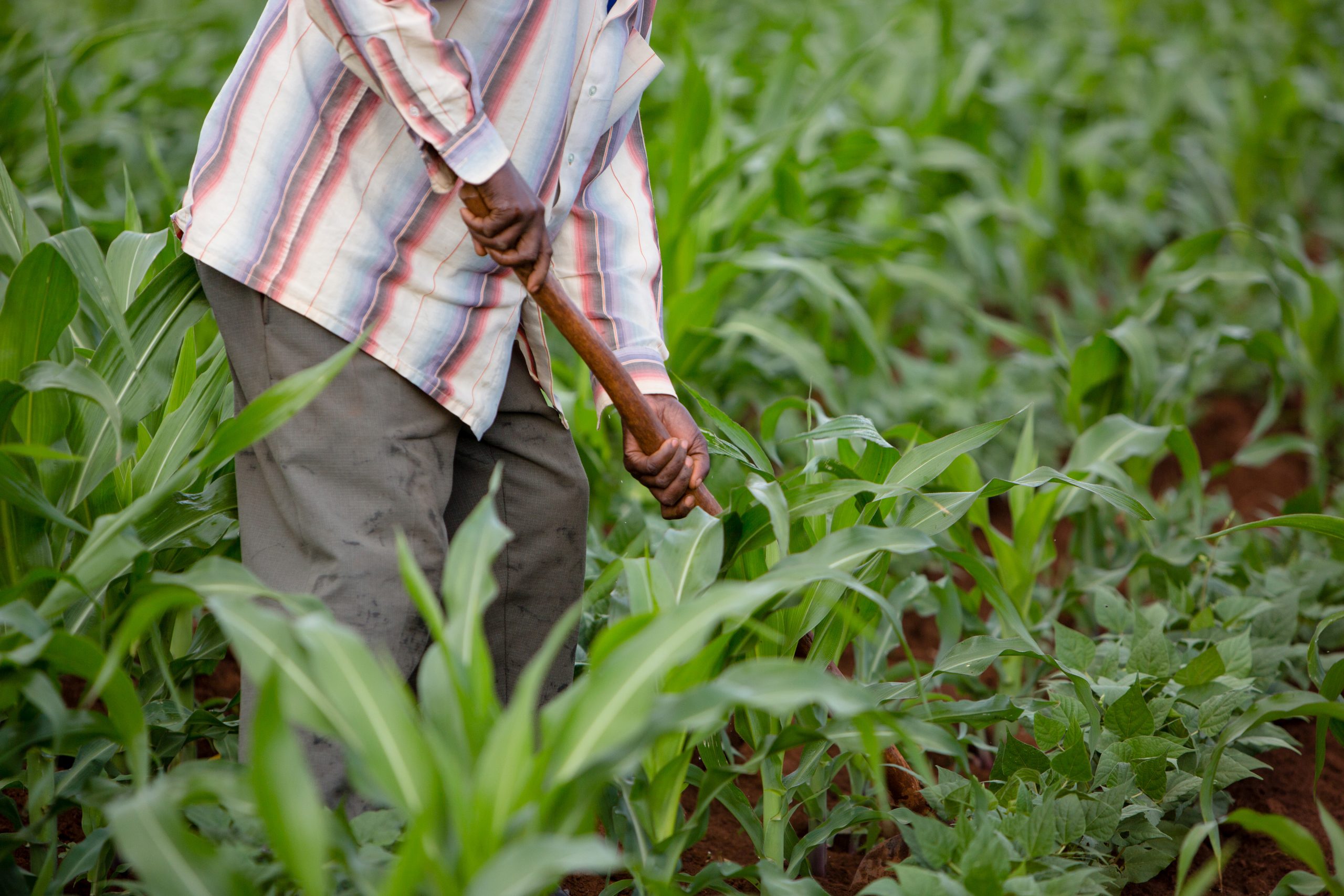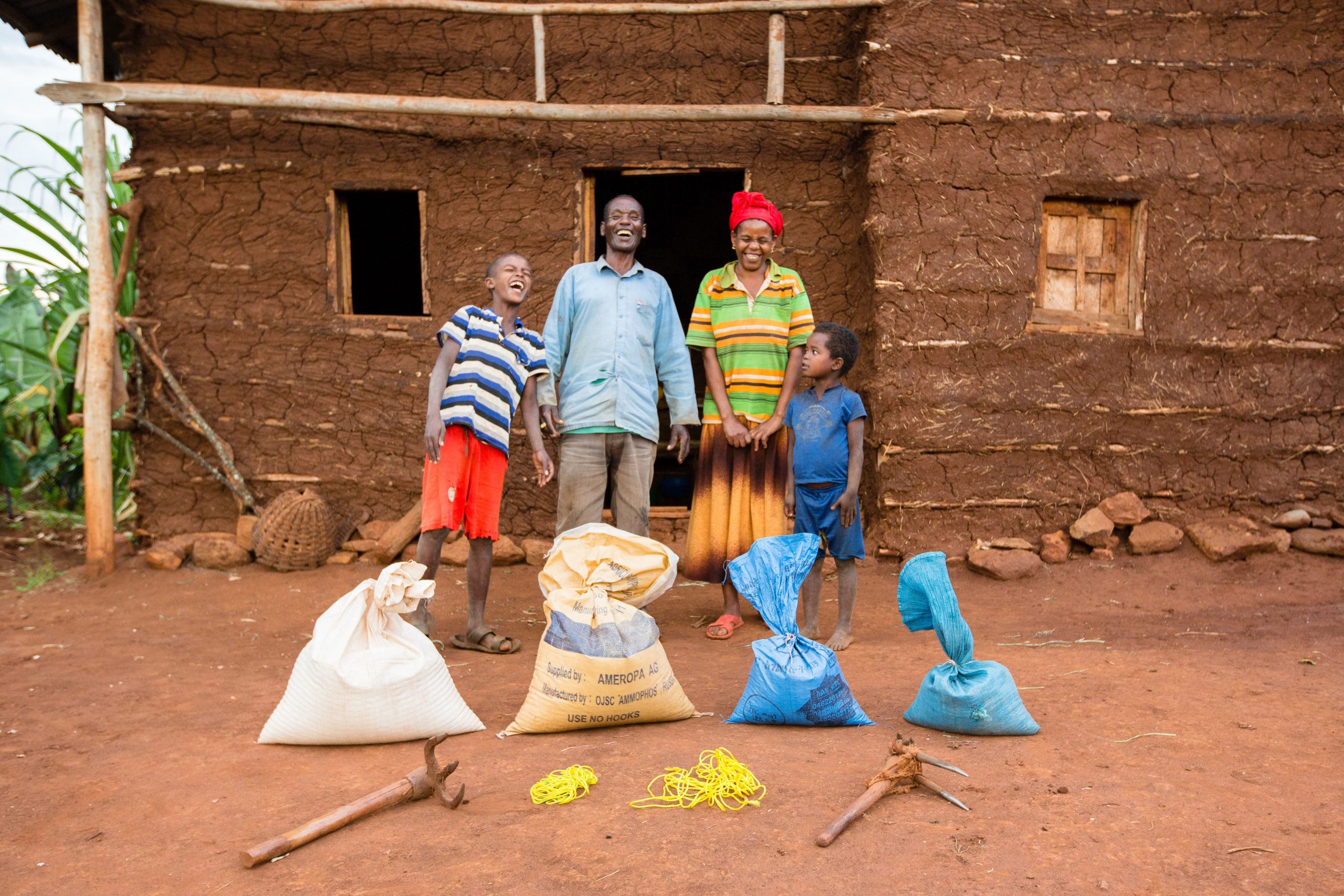COVID-19 has wreaked havoc on the globe, and while many countries have started to see some semblance of normalcy, the pandemic itself and the lack of access to vaccinations continues to disrupt economies and destroy livelihoods across many African countries. Nuru Ethiopia navigated the unexpected hurdles of 2020, and it continues to create impact for vulnerable farmers in Ethiopia. The organization is providing vital services that equip farmer organizations and ensure local food systems continue to function.
For the smallholder farmers that Nuru Ethiopia serves, challenges like erratic rainfall and pest outbreaks are not uncommon; however, in 2020 those challenges were coupled with the instabilities presented by COVID-19 as well as ongoing conflicts in the Tigray region. Nuru Ethiopia’s interventions were tested in unforeseen ways, and many organizations throughout the country were forced to shut their doors.
“Nuru Ethiopia remained vigilant, safe, and committed. They continued to support the communities in which they live and work, and were able to adapt and deliver vital agricultural extension services and productive assets to rural communities that would have been otherwise unavailable to those farmers.” -Nuru International Livelihoods & Agribusiness Director Casey Harrison
Last year, Nuru Ethiopia served 31 farmer cooperatives, one cooperative union, and nearly 45,000 people in Gamo and Gofa Zones of Southern Nations, Nationalities, and Peoples’ Region (SNNPR) of Ethiopia. With the advent of COVID-19, Nuru Ethiopia expanded its efforts by working to help the government distribute soap and establish hand-washing stations throughout Nuru’s area of operations. These efforts proved to be essential in ensuring the continued health and safety of Nuru farmers, especially as Ethiopia remained under a state of emergency for most of 2020.

Nuru Ethiopia’s interventions proved capable of withstanding the seemingly insurmountable. The organization successfully continued to build resiliency in farmer families. Nuru farmers increased their crop yields by 77 percent compared to their 2016 baseline. This is more than double the targeted yield increase benchmark of 32 percent. Increased crop yields guarantee that farmers have produce to sell locally, guaranteeing them income. Furthermore, this ensures local food systems can continue to provide sustenance for their communities.
The farmer organizations that Nuru Ethiopia supports also achieved notable success during 2020, with an average SCOPEinsight score of 4.0 out of 5 (above the agricultural average of 3.3 in 2018.) This demonstrates competitiveness at national, regional, and global levels for agricultural farmer organization businesses. Furthermore, 80% of these supported farmer-owned and farmer-led organizations achieved net profit. The accomplishments that Nuru Ethiopia achieved during 2020 are a testament to the organization’s resilience and the adaptive leadership of its local leaders.
“Nuru-supported farmer organizations in Ethiopia are key to linking the 7,500 smallholder farmers they serve to larger regional and national markets where these farmers can receive a more fair and equitable price for their surplus crop yields. Farmer organizations provide a wide range of services to their members, such as input supply, storage facilities, collective marketing opportunities, agricultural technologies, and training in Best Agricultural Practices (BAPs).” -Nuru Ethiopia Marketing & Development Director Feven Yimer
Nuru partners with the Ray Marshall Center of the University of Texas for third-party evaluation of its programming. Click here to read the full report.


